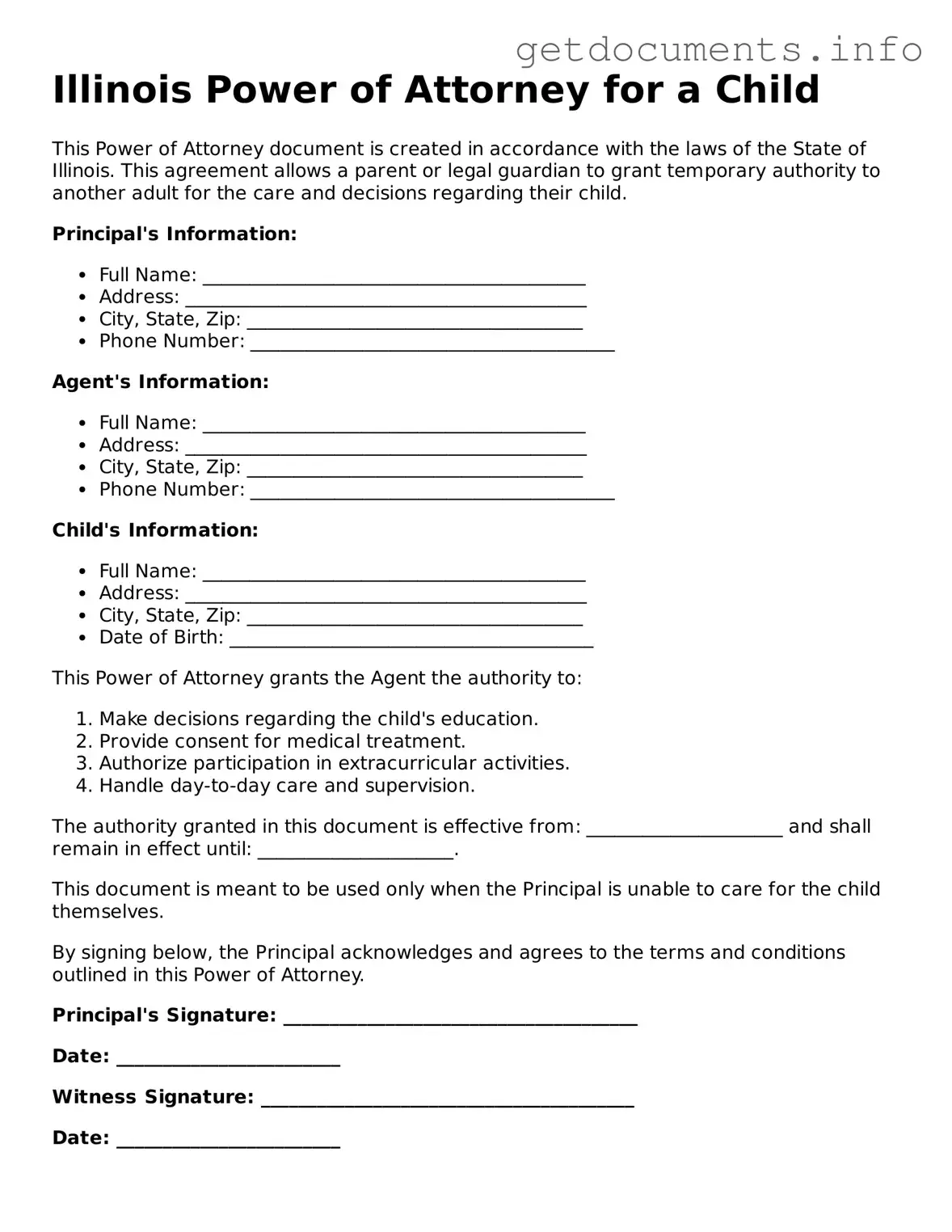Free Power of Attorney for a Child Template for Illinois
The Illinois Power of Attorney for a Child form is a legal document that allows a parent or guardian to designate another adult to make decisions on behalf of their child. This form is essential for ensuring that a trusted individual can act in the best interest of the child when the parent or guardian is unavailable. It is crucial to complete this form accurately to avoid any potential issues in the future.
Take action now and fill out the form by clicking the button below.
Access Power of Attorney for a Child Editor

Free Power of Attorney for a Child Template for Illinois
Access Power of Attorney for a Child Editor
Got places to be? Complete the form fast
Fill out Power of Attorney for a Child online and avoid printing or scanning.
Access Power of Attorney for a Child Editor
or
⇩ PDF File
